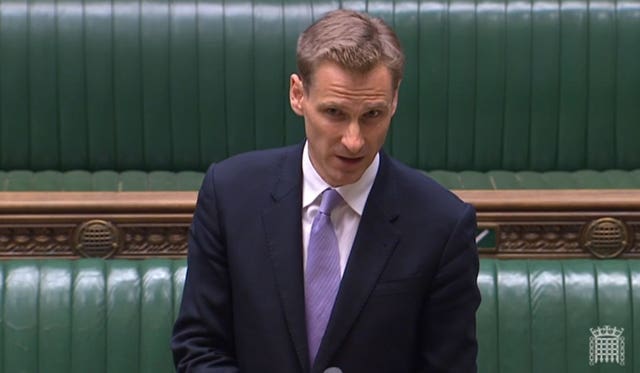
Clare Foges 6pm - 9pm
30 May 2022, 21:14

The energy group confirmed the plan remains for the Somerset plant to move into the defueling phase by August 1 2022.
EDF Energy has ruled out postponing the shutdown of the Hinkley Point B nuclear power station, after a minister suggested the Business Secretary was considering extending its life.
Culture minister Chris Philp said on Monday that Kwasi Kwarteng was looking at whether the plant “might continue beyond its planned end”, on the condition this complies with “safety certification”.
He said this would be a “sensible precautionary measure” to guard against a “worst-case scenario” in Britain sparked by disruption to the global gas market.
But the Financial Times later reported that EDF told staff in a memo that although it is “technically feasible” to extend operations at the power station for up to six months, the time required to achieve this has “now run out”.
It was announced that Hinkley Point B was to move into decommissioning within the next two years in November 2020.
EDF said at the time that the Somerset plant would be moved into the defueling phase no later than July 2022.
A spokesman for the energy group said in the wake of Mr Philp’s comments that this was still the plan.
“As confirmed in November 2020, Hinkley Point B nuclear power station will stop generating and move into the defueling phase by August 1 2022,” they said.
“It has reliably produced zero carbon electricity for over 46 years, more than 15 years longer than envisaged when built, and will complete its generating phase as the most productive nuclear site the UK has ever had.”
Speaking to Times Radio, Mr Philp was asked about reports ministers had been warned of potential power cuts to as many as six million households this winter, with the Government drawing up plans for rationed electricity if supply issues deteriorate.
Last month Mr Kwarteng wrote to the owners of the UK’s remaining coal-fired power stations to ask them to stay open longer than planned.
He also wrote to the National Grid’s Electricity System Operator (ESO) last week, instructing it to work with the industry to boost non-gas-fired supplies over the winter.
Mr Philp told Times Radio: “I think what the Business Secretary Kwasi Kwarteng did last week was take some sensible precautionary measures to guard against a potential worst-case scenario.
“He asked, I think, the three remaining coal-fired power station operators to just keep their power stations available beyond the point of which they were due to be switched off, and I think he is considering whether Hinkley B, the large nuclear power station, might continue beyond its planned end of life as well.

“That’s a sensible precautionary measure, given that gas supply coming out of Russia and Ukraine is, for obvious reasons, so heavily disrupted and we do, of course, use quite a lot of gas to generate electricity.
“Only a very small proportion of that, of course, comes from Russia. A lot of ours comes from Norway and in the form of liquefied natural gas but, of course, disruption to the global gas market will have a knock-on effect that may affect the gas that we consumed domestically in the United Kingdom.
“So, I think these are just sensible precautionary measures, just to guard against a potential worst-case scenario.”
When asked about the risks and if the Government had any concerns about Hinkley Point B, given “it is nearly 50 years old”, Mr Philp said: “Well, obviously when it comes to nuclear power generation, or indeed any power generation, safety is paramount.
“So, no extension to the life of any power station in the UK, least of all a nuclear one, would take place unless the safety certification had been done in a very thorough way.
“We are very fortunate in the United Kingdom to have an incredibly good safety track record around our nuclear power stations that have been running now for, I think, 60 or so, more than that, probably 70 or so years now.
“We obviously have no intention at all of diluting or reducing those world-leading and incredibly high safety standards.”
Hinkley Point B started generating electricity in 1976 and since then has produced more than 300 terawatt hours of power – an amount of energy that would meet the electricity requirements of every home in the UK for three years.
A Government spokesman said: “Any extensions to operational dates for the UK’s nuclear power stations are a matter for the operator of the stations, EDF and the regulator the Office for Nuclear Regulation, which are based on safety considerations.
“The Government has no direct involvement in this process and has not made any requests of this kind.”